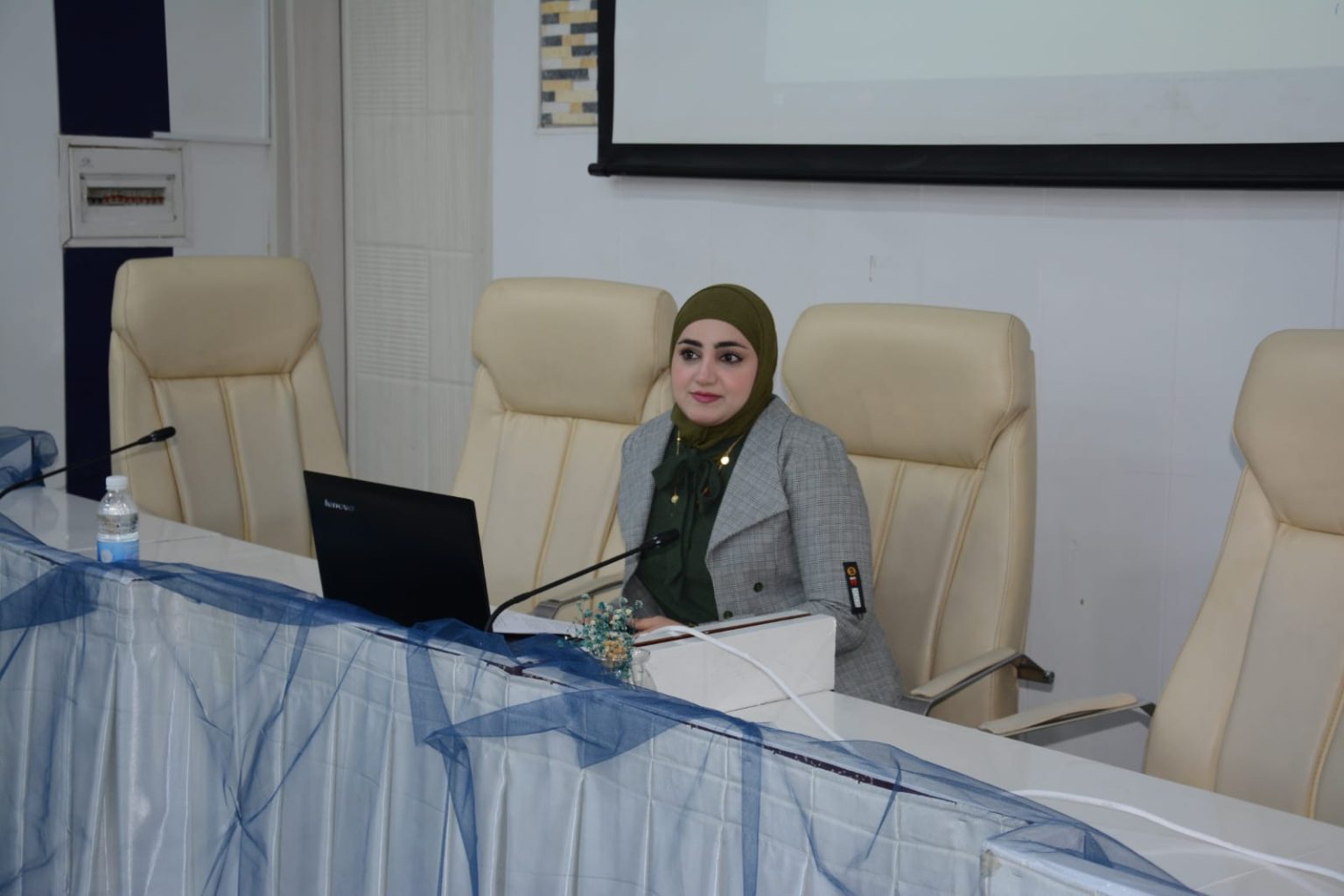The Scientific Affairs Unit at the College of Physical Education and Sports Sciences for Girls, University of Baghdad, held a scientific symposium entitled (Spyker’s Crime between the Brutality of Killing and a Memory that Does Not Die), presented by a member of the Theoretical Science Branch Asst. Lect. Nour Al-Huda Hamid.
Ms. Nour Al-Huda explained that the Spyker crime is one of the worst human crimes committed by ISIS in Iraq since 2014, recalling the circumstances that Iraq lived from internal conflicts with terrorist groups, which started from the cities of Mosul, Tikrit, Kirkuk, and Salah al-Din.
She also reviewed the most critical brutal crimes committed by ISIS against the children of the areas above, from mass killing, kidnapping, displacement, sexual and physical rape, trafficking in women and children, and forced recruitment for children, as well as destroying religious and cultural features, and at the same time noted the essential human damage to the victims as a result of the psychological warfare that was practiced against them, including material, physical, mental and psychological harm, as well as completely disrupting daily life.
This symposium has achieved one of the sustainable development goals of the fourth goal of good education.
